My mother’s voice burns me. Through the phone she talks as if the deceased was a son of hers, a dear person that she knew. As if she put on his shoes every day and took him by the hand to his school; as if she stood by his side when he won in his football matches and chanted his name loudly: “Abdel Basset, you beauty!”
My mother knew him without sharing such a life with him. She knew him as a mother, as a woman from Homs and as a follower of what was happening to her bleeding country at the start of its revolution, through the television screens and echoing loudspeakers transmitted through YouTube.
She knew him from her revolution: the revolution that has now gone somewhere else. It was injustice alone that pulled at his nerves and chords to fight until the final breath.
My mother’s voice burns me. Through the phone she talks as if the deceased was a son of hers, a dear person that she knew. As if she put on his shoes every day and took him by the hand to his school; as if she stood by his side when he won in his football matches and chanted his name loudly: “Abdel Basset, you beauty!”
The free voice of Abdel Basset used to come to us, the children of Tripoli, the children of Syrian mothers, pulsating, making us believe that the freedom that was called for by our people in Homs is our freedom too.
This is not a sad story with an ending befitting a brave hero. It is a collective story of all the outcomes of a major tragedy called Syria, a collective tragedy for the condition of Syrians who chanted against a regime of murder, barbarity and destruction, while aspiring to dignity and honour.
The son of all Syrian women
My mother doesn’t really know him, like the other Syrian mothers who loved him and today feel the bitter feeling of loss: this loss that was transmitted to me through the telephone, her voice dripping with sadness.
She tells me of her sadness that will grow like a tree in the garden of her losses, she who has now passed 70 years of age; she who will not see, perhaps ever again, her city of Homs. The city that was our market, our summer resort, our entertainment and the birthplace of our revolution. My Homsi mother has today lost, as all of the children of our mother, the Syrian revolution, have lost – their voice: Abdel Baset al-Sarout.
“Tell me about him” – as if he were closer to her than my own face that has become distant. Her voice burns me as she says that he has been martyred. And the word martyr, for my mother, is a word with a meaning that exceeds its religious, spiritual and semantic meanings. It is a word that conveys loss, a greater loss than her and her love of the revolution of her family and people, the revolution of our mother, Syria.
My mother from Homs, from the Krak des Chevaliers; she moved to Tripoli in Lebanon, where we were born, but Homs never died in her heart, with the family journeys never taking her long from her Homs al-Adiya (the nickname of ‘resistance’, based on the historically rebellious nature of Homs). She used to return in spite of herself to the voices of her family and their Homsi dialect – and through Abdel Baset al-Sarout, her means and way back to nostalgia and memories, after she was saddened by the fall of Homs in the hands of the dictator.
My mother who narrates to me in her desperately sad voice, how the chanting and singing voice of this young man used to make her dream of the city of her family and siblings, of neighbourhoods that remain rooted in her memory.
The voice of freedom
The free voice of Abdel Basset used to come to us, the children of Tripoli, the children of Syrian mothers, pulsating, making us believe that the freedom that was called for by our people in Homs is our freedom too. Our freedom from a regime that killed us and fought us, a regime that trifled with and abused our city of Tripoli, leaving its wolves to ravage our youth. This regime that will be followed and haunted by the voice of Sarout everyday to the end of time: a revolution, O our homeland.
When this revolution was, and it remains our revolution, composed of all of the different sects of Syria’s spectrum; when Sarout accompanied Fadwa Soliman, standing together: Sunni and Alawite, to tell Assad that this revolution was bigger than the sectarianisation of its noble seeds, as his Shabiha rumoured.
Even if this young man was one day attracted to extremist currents, he is the one who fought and will fight with his voice and gun the regime that killed his brothers and destroyed his house and stole all his dreams. Transmitting a tenderness which we lack today in a savage world, a tenderness that resembles his vocal chords, he and that strengthened our faith in freedom, and our faith of emerging out of the tunnel.
“Paradise, Paradise, Paradise”
Sarout is martyred even if some do not want to grant him this description, because to Syrian mothers, he is a martyr. He is as much a martyr as those killed during torture or crushed to death before him, the many martyrs who died under bombs and the exchange of fire between brothers and enemies, the many martyrs who died under the warplanes or after inhaling the fumes of chemical weapons.
Sarout has been killed and martyred for an idea that is bigger than him, one which he knew and felt when he went out on a March day in 2011, chanting, singing: “Paradise, paradise, paradise: our homeland, you are a paradise; O generous homeland, by God O homeland, even your hell is a paradise.”
Indeed, that fire of this country and the Syrian holocaust was a paradise for him, one which he wanted to conclude his life in across all its frontlines. He fought with everyone against Assad.
Sarout lived through all the changes of this revolution and all of its tragedies, through all of its catastrophes, all of its surges, all of its sorrows and all of its destruction. He tried until the last breath to fight his primary enemy: the self-perceived perpetual regime, the regime of murder from the father Hafez to Bashar the son, and their criminal machineries.
He tried first going out as a normal protester to become the vocalist of the revolution and its singer, the leader of its movement in pure flesh, against the bullets of the Shabiha in Homs, then as a fighter on various frontlines – allowing all the transformations of the conflict to draw him and attract him, relating all the shocks and angry language, sectarian and otherwise, carrying all its wounds in its tense and destructive moments, in moments of loss and defeats and minor victories.
He followed various paths, even those which we did not support, because he believed that he wanted to fight a single face of Syria’s tragedy: its regime. He wanted to bring down that regime, the moment he chanted “Down down with the regime”, to when he picked up his weapon in his brigade that he led and finally to when he reached Hama’s northern countryside, where he was wounded and died, with his eyes still fixed on freedom.
Goodbye O Sarout, goodbye to that affectionate voice chanting in its last throes: paradise, paradise, paradise.
This is not a sad story with an ending befitting a brave hero. It is a collective story of all the outcomes of a major tragedy called Syria, a collective tragedy for the condition of Syrians who chanted against a regime of murder, barbarity and destruction, while aspiring to dignity and honour.
Goodbye O Sarout, goodbye to that affectionate voice chanting in its last throes: paradise, paradise, paradise.
Raseef22 is a not for profit entity. Our focus is on quality journalism. Every contribution to the NasRaseef membership goes directly towards journalism production. We stand independent, not accepting corporate sponsorships, sponsored content or political funding.
Support our mission to keep Raseef22 available to all readers by clicking here!
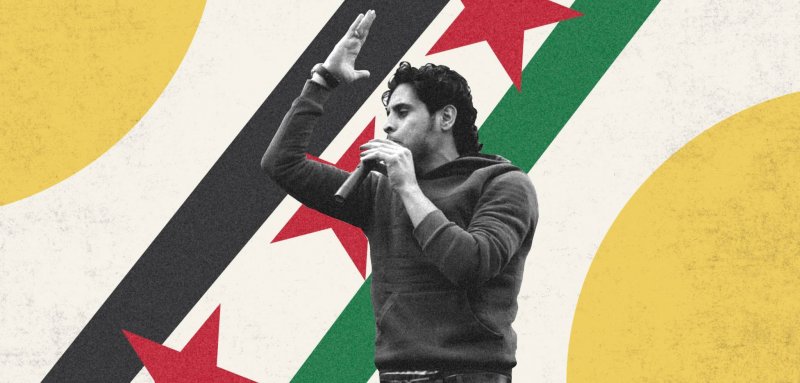
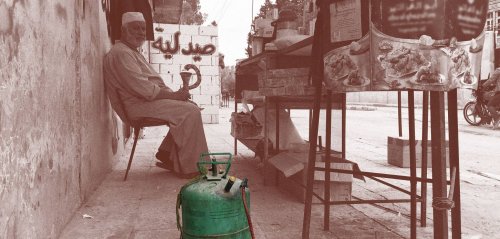
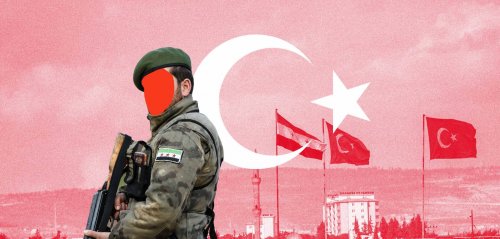
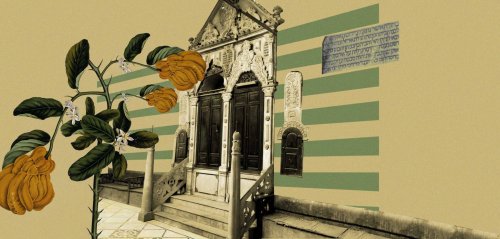
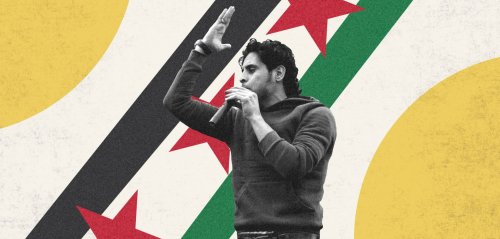




Join the Conversation
Anonymous user -
1 day agoUn message privé pour l'écrivain svp débloquer moi sur Facebook
Anonymous user -
1 day agoالبرتغال تغلق باب الهجرة قريبا جدااا
Jong Lona -
2 days agoأغلبهم ياخذون سوريا لان العراقيات عندهم عشيرة حتى لو ضربها أو عنقها تقدر تروح على أهلها واهلها...
ghdr brhm -
2 days ago❤️❤️
جيسيكا ملو فالنتاين -
5 days agoجميل جدا أن تقدر كل المشاعر لأنها جميعا مهمة. شكرا على هذا المقال المشبع بالعواطف. احببت جدا خط...
Tayma Shrit -
6 days agoمدينتي التي فارقتها منذ أكثر من 10 سنين، مختلفة وغريبة جداً عمّا كانت سابقاً، للأسف.